Dewey Cannabis is a Tier 2 producer that’s built a reputation for using science to create award-winning strains and new knowledge that can benefit the entire industry. With a team of plant scientists and the full capabilities of an in-house testing lab, Dewey is a shining example of the intersection of science and farming that makes the Cannabis industry so beautiful. We chatted with Founder and CEO Jordan Zager, who launched Dewey in 2018 after earning a Ph.D. in biochemistry.
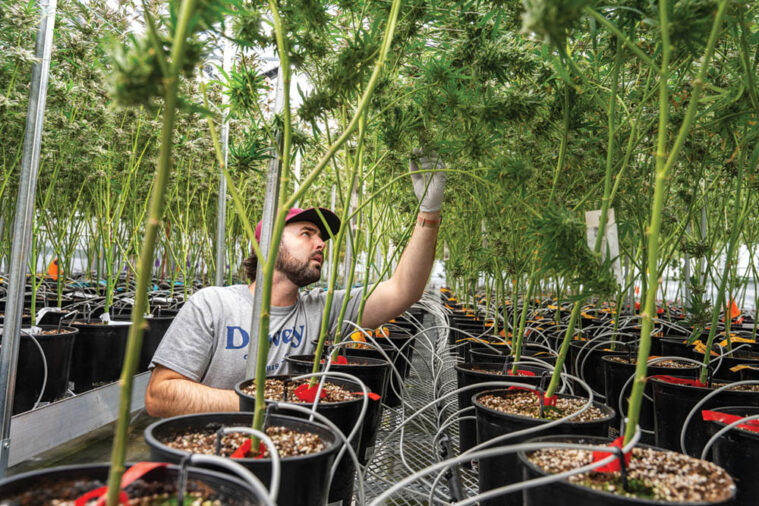
How did you start working with the Cannabis plant?
My origins with Cannabis go back to my parents — I’m a second-generation Cannabis entrepreneur. I got really excited in California’s Prop 215 days and grew medically while I was also going to school for biochemistry. I was learning all these cool things about genetics and working with the plant on a daily basis and decided that I wanted to combine these two things and contribute to what we know about Cannabis science.
What led you to Washington’s industry?
In 2014, shortly after legalization kicked off, I worked at both the University of Nevada and UW, looking at how genetics influence how plants make special compounds, mostly working with mint and tomatoes — how mint makes its flavor components and how tomatoes make natural compounds to ward off pests. As I was wrapping up my Ph.D., I launched Dewey. It started with a small tissue culture lab in my house, which I used to raise money, and eventually acquired a license and have been breeding and producing Cannabis ever since!
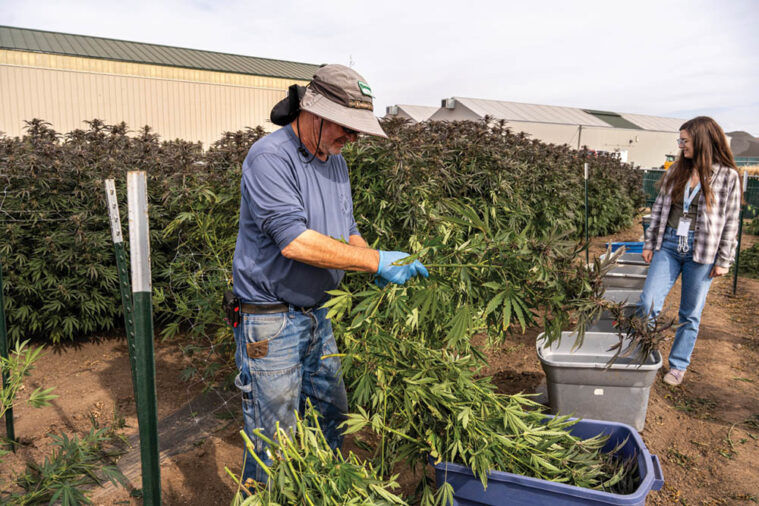
How do you use science in the day-to-day work of growing at Dewey?
It’s involved with every aspect of what we do: whether it’s monitoring grow room conditions like light, temperature, humidity, or soil sensors for our coco to see moisture and salt contents. I can pull up an app and look at the grow from anywhere, anytime. Really at the base of what we do is breeding. We were lucky enough to start with a genetic library of old-school strains, and at our facility, we have all the capabilities of a testing laboratory, except for pesticides. So during our breeding process, we can run potency testing and look for over 75 different terpenes to zero in on a target from a potency or aroma standpoint. If you look at our portfolio of genetics right now, we’re really checking all those boxes on aroma classes, and if you look at the Leaf Bowl, every aroma class we’ve submitted into has won an award.
A grow with a testing lab is unheard of! Do you hire scientists to work on your breeding team?
Our breeding team has Ph.D. plant breeders — folks that cut their teeth breeding wheat for Washington State University or barley for the USDA. We have a slightly different approach. These guys come from other industries, where any issues in a seed lot reflect poorly on their breeding. We’ve tried to maintain the ego of a more traditional plant breeder while coming out with exciting things so that in the future we can offer our seeds and genetics to other growers. My co-founder is a professor of biochemistry at WSU, so we recruit new scientists from school to work with us. We’ve been blessed to provide his knowledge from being on the cutting edge of plants making special compounds, whether for atoms or cancer. Working with his mind has been a real advantage.
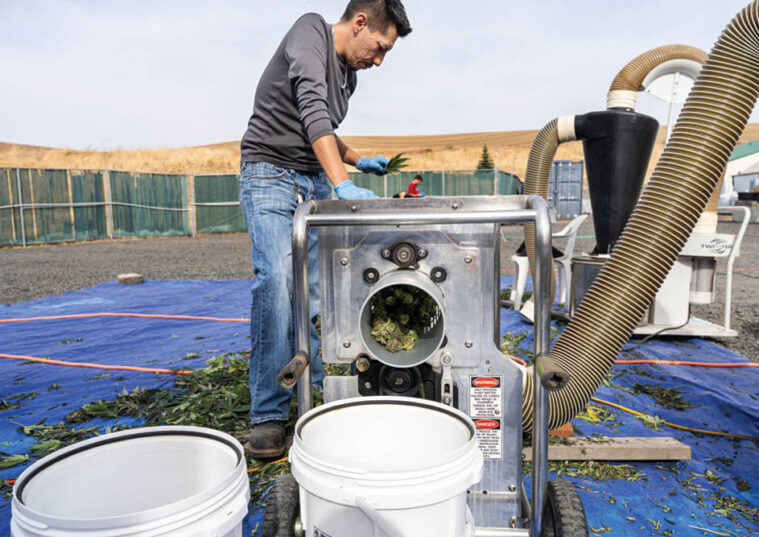
What’s an example of science that’s been developed by Dewey?
In 2020 we discovered a rare gene responsible for powdery mildew resistance. We didn’t lock it up; we shared it with the world — anyone can find the research and take advantage of the finding. We passed on this gene for PM resistance because it’s a major problem for the industry, and important for consumer safety.
That’s walking the walk when it comes to truth and integrity with science. What other areas have you been focused on?
There’s so much we don’t know as plant scientists and chemists. We’ve focused on terpenes and flavors and have been testing to understand where smells in Cannabis come from. The skunk aroma is a great example because conventional wisdom was that myrcene drives the aroma, but it doesn’t really smell skunky. In 2021 a California research group published a paper about a compound called MBT that the animal skunks make and is present in Cannabis. So we took that knowledge and have been applying it to our breeding program. We are testing and looking for flavors that come from esters, ketones and other elements with low odor thresholds that have been undetected or largely ignored.
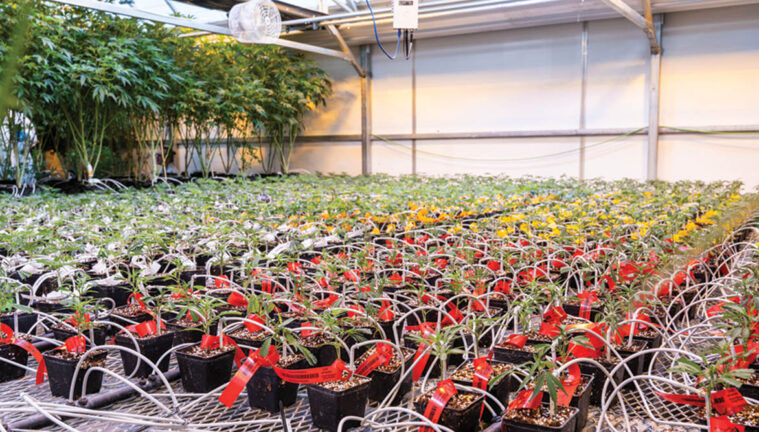
So there’s more to Cannabis flavors than terpenes?
There are flavor profiles that are driven by chemicals that smell strong to us in really small amounts: their odor threshold. Most terpenes are detectable to humans in parts per million, but compounds like MBT, blue cheese or tropical flavors are smellable in parts per billion, so you need way less, and these chemicals get drowned out by terpenes in most scientific tests. So much of the focus has been on terpenes because they are components of essential oils and present in Cannabis, but they are not the whole story.
So you’ve focused on breeding and releasing strains that are high in potency and rich in flavors?
We built the breeding program selecting for potency and yields to build a base so that we could then diversify into aroma. Now when we pheno hunt, we have high odds of potency and yielders, so now we are looking for strong aromas. With that focus, we’ve been able to hone in on things like the blue cheese aroma. We now have a testing standard for that aroma and are breeding for that trait. We’ve released 16 new genetics this year, all unique to Dewey, and have another nine lined up for 2025.
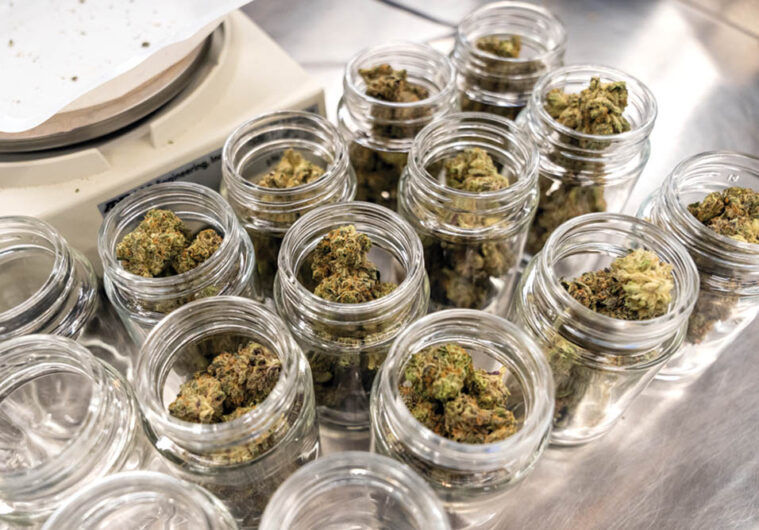
What’s a strain you were excited about releasing this year?
The Yuzu Kush Cake has an incredibly refreshing terpene profile with really rich citrus notes and a backside kushy funk. It’s a cross of OG Kush and Lemon Cake. The aroma is next level, and the bud form of beautiful little purple nuggets up and down the plant is a combination we’ve been working with to find varieties that are purple with sativa-like effects. Another favorite is the Glitter Party, a Leaf Bowl-winning cross of Cosmic Pie and Island Cookie. We named it because of how trichome-rich and frosty the buds are, like little disco balls!
Using science to breed award-winning strains is really the future of breeding, and with so much information here, we’re definitely going to return to Dewey for the Leaf’s 2025 Flower Issue. Until we can dig into the science again, what has you most excited for the future of Dewey and the industry?
I hope for us and our industry to get relief from the taxes and elimination of 280e. Our industry is struggling so hard right now, and it’s the only one where prices have dropped as costs have gone up. For Dewey, we want to continue building our genetic library so we can get our products into the hands of more people in more states. We work to provide a high-quality product efficiently and sustainably, and we want to continue to share what we learn about Cannabis science as we do it. We aren’t shy about sharing our research and publish most of what we discover so we can contribute to the general knowledge of the plant!
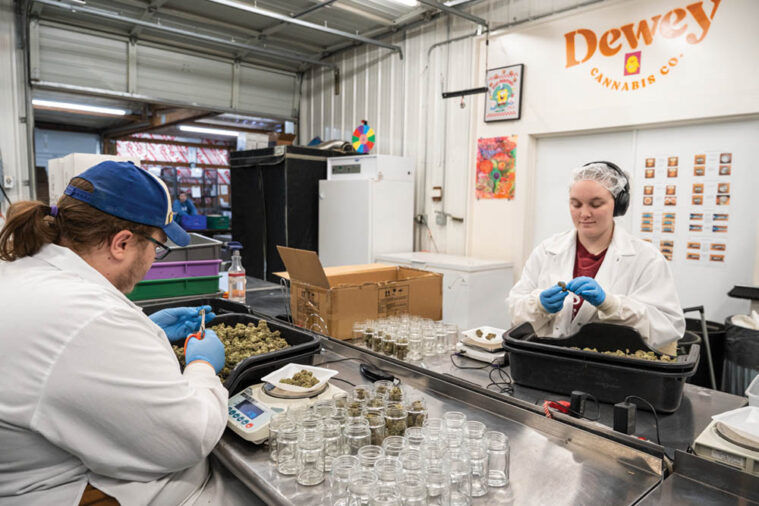
Farm Facts
Testing capability for potency and terpenes
Test for 75 different terpenes
Released 16 new strains this year
Discovered the gene for powdery mildew resistance










